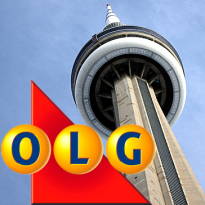 On Thursday, the Ontario Lottery and Gaming Corporation (OLG) published a request for information (RFI) on “modernizing land based gaming” in the province. The request, which seeks to gauge private sector interest in constructing gaming facilities in Ontario, breaks the province down into 29 potential Gaming Zones where “a single gaming facility” would be allowed to operate. The zones (viewable here) include all of the province’s major urban centers, but Zone C1, which contains the waterfront areas of Toronto and Mississauga (plus Markham), is the one on which most of the major players – MGM Resorts, Caesars Entertainment, Las Vegas Sands, Onex et al – will be focusing their hungry eyes.
On Thursday, the Ontario Lottery and Gaming Corporation (OLG) published a request for information (RFI) on “modernizing land based gaming” in the province. The request, which seeks to gauge private sector interest in constructing gaming facilities in Ontario, breaks the province down into 29 potential Gaming Zones where “a single gaming facility” would be allowed to operate. The zones (viewable here) include all of the province’s major urban centers, but Zone C1, which contains the waterfront areas of Toronto and Mississauga (plus Markham), is the one on which most of the major players – MGM Resorts, Caesars Entertainment, Las Vegas Sands, Onex et al – will be focusing their hungry eyes.
Casino critics are viewing the grouping together of Toronto and Mississauga into the same zone as a way of playing one municipality off the other; seeing which one is willing to bend over further in order to land the zone’s single casino. Public opinion in Toronto has been running against the idea of adding a casino and city council is divided on the issue. Critics say the potential threat of the tourist trade shifting west to Mississauga could tip the balance in council in favor of keeping the casino local.
While city council may be swayed by the economic argument, residents will be a tougher sell. But the average Torontonian’s opinion may not matter much anymore. Provincial finance minister Tim Duncan says no community will be forced to accept a casino, yet the province quietly killed a regulation requiring a public referendum on the issue, replacing it only with a requirement that “public input” be sought before a decision is made. Duncan feels the province has “huge underserviced markets” like Ottawa and Toronto and that no desiring gambler should be “forced to travel 20, 30 kilometers to access gaming.”
The OLG release stated that a second RFI for “the expansion of lotteries” would be released in coming weeks. In March 2012, OLG released a Strategic Business Review that called for a shift of day-to-day lottery operation to a regulated private sector operator and an expansion of retail operations including via the internet and mobile devices. OLG also suggested it would “allow for regulated private sector game development to foster innovation and responsiveness.”